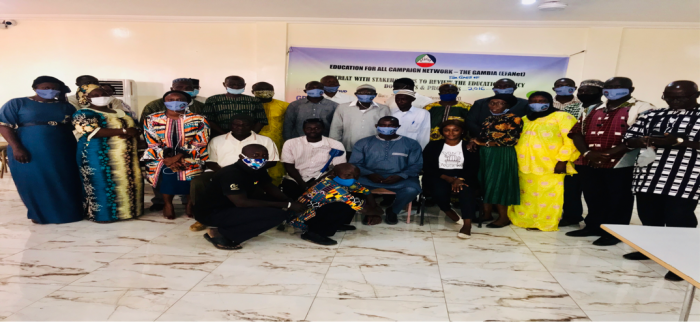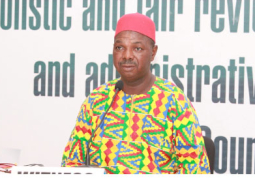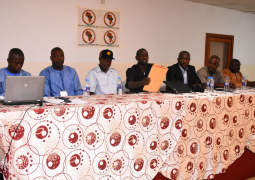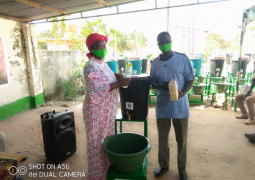
Held at the National Association of Cooperative Credit Unions Gambia (NACCUG) in Bakau, the two-day forum was designed to identify some of the existing gaps in the education policy and programs and to come up with tangible recommendations to address them.
At the opening ceremony, Louis Moses Mendy, permanent secretary at the Ministry of Basic and Secondary Education spoke at length on the importance of education and inclusiveness.
While applauding EFANet for campaigning for all-inclusiveness with regards to education, he reminded that students in urban areas are as important as those in the rural communities.
“Every one is entitled to be educated, every one has the right to be educated.” he emphasized
Education, he added is ‘what transforms society and brings about the well-being of the human race.’
“It should not be for a limited class or for a limited privilege, but for all of us regardless of where you come from.”
Mr Mendy congratulated the network for involving people with disabilities, saying people sometimes think that being physically, mentally or socially challenged translates into being limited in ability to perform.
He maintained that for him some physically challenged people are more productive than those who are physically, mentally and socially fit.
Bakary Badjie, board chairperson of EFANet described the seminar as timely and that it couldn’t ‘have come at a better time than now when socio-economic activities including teaching and learning globally have been hampered by the coronavirus pandemic.
The two-day engagement, he added is also expected to consider the planning and management of Disaster Risk Reduction (DRR) on education.
Badjie revealed that the network has partnered with relevant stakeholders to ensure that there is diverted gender inclusiveness and quality public education for all.
“Four years have passed since the adoption for the transformative 2030 agenda. We can now begin to take stock of how much we have achieved in early implementation of SDG-4 and the incorporation of SDGs into national development plan and its undertaking gap analysis to promote policy coherence.”
He underscored the significance of quality education and gender equality, adding that investing in girls’ education will greatly transform their lives.
“It will help us build resilient societies and sustainable economies we wish to achieve.”
Kebba Omar Jarjusey, National Coordinator of EFANet said as a civil society organization they realize that there are gaps in terms of understanding of the education policy and as such, it limits participation in education policy dialogue, policy monitoring and implementation.
He indicated that EFANet as a body is still not a member of the education council, saying one of their expectations would be for the network to be part of the council.
Read Other Articles In National News




